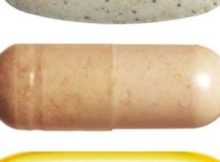As women, we tend to be more aware of the need to take care of our bodies and consider the best vitamins for women’s health needs. Face it, we don’t have a choice. Mother Nature’s blueprint isn’t exactly high-tech, and no matter what sophisticated gadgets we use, certain age-old processes are going to continue, both monthly and over the course of a woman’s lifetime. Fortunately, we’ve evolved nutritionally and learned that along with a clean diet, rich in nonstarchy veggies and lean protein, the right supplements can help smooth out the bumpy road of life.
There are four primary supplements women should pay attention to. These include the following:
Vitamin D
If you’re only going to take one supplement, make it vitamin D. Our bodies use sunlight to manufacture vitamin D. Unfortunately, most of us do not have enough sun exposure, and when we do, we are usually wearing sunscreen. Vitamin D supports the immune system and helps us build and maintain strong bones. When our vitamin D level is low we are more susceptible to depression, fatigue, weight gain, and chronic pain. Dr. Evans recommends Vitamin D3 1,000-2,000 IU (international units) per day. Vitamin D has almost no side effects and is hard to overdose on, so Dr. Evans usually recommends 2,000 IU in most adults.
Folic Acid
All menstruating women should take 400 to 800 mcg (micrograms) of folic acid. Since approximately 50% of pregnancies in the United States are unplanned, it’s important to supplement folic acid prior to pregnancy since it significantly reduces the risk of neural tube defects and other neurologic problems in newborns. According to Dr. Evans, if there is even a remote chance that a woman could find herself pregnant, she should be taking a folic acid supplement.
Fish Oil
If a woman has risk factors for cardiovascular disease such as diabetes, hypertension, elevated cholesterol, or strong family history of cardiovascular disease, she should consider a fish oil supplement. Dosage recommendations vary widely from 1,000 to 4,000 mg of omega 3 acids per day. Dr. Evans usually has women start with 1,000 mg and then gradually ups that dosage if her patients tolerate it well. Fish oil can cause upset stomach, burping, and loose stools.
Calcium
The recommendations for calcium are in flux right now. While many women believe they need a calcium supplement, Dr. Evans usually advises her patients to try getting calcium from their diet instead of taking a supplement. She only recommends supplements for patients at increased risk for osteoporosis.






